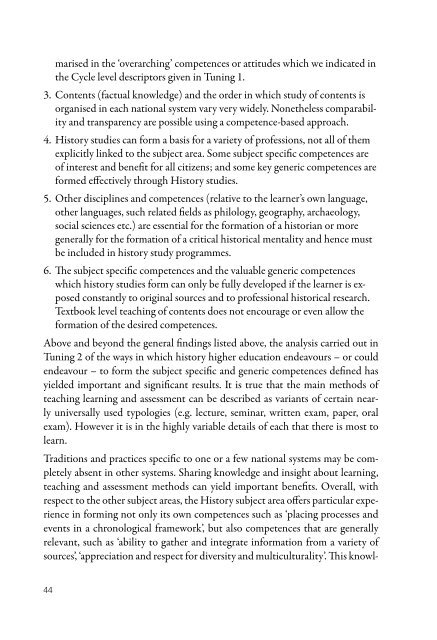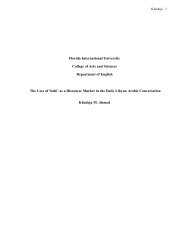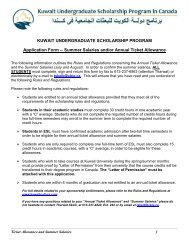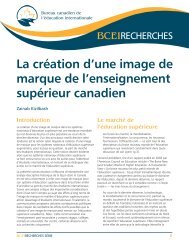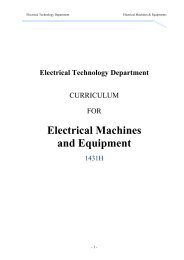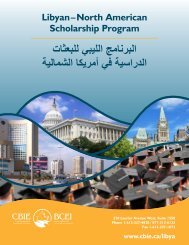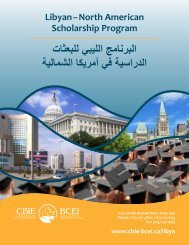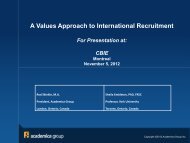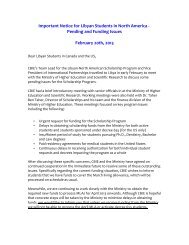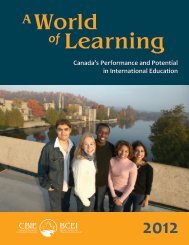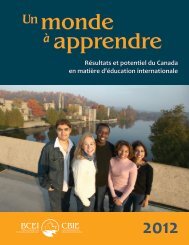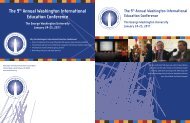Creating a New Historical Perspective: EU and the Wider World ...
Creating a New Historical Perspective: EU and the Wider World ...
Creating a New Historical Perspective: EU and the Wider World ...
You also want an ePaper? Increase the reach of your titles
YUMPU automatically turns print PDFs into web optimized ePapers that Google loves.
marised in <strong>the</strong> ‘overarching’ competences or attitudes which we indicated in<br />
<strong>the</strong> Cycle level descriptors given in Tuning 1.<br />
3. Contents (factual knowledge) <strong>and</strong> <strong>the</strong> order in which study of contents is<br />
organised in each national system vary very widely. None<strong>the</strong>less comparability<br />
<strong>and</strong> transparency are possible using a competence-based approach.<br />
4. History studies can form a basis for a variety of professions, not all of <strong>the</strong>m<br />
explicitly linked to <strong>the</strong> subject area. Some subject specific competences are<br />
of interest <strong>and</strong> benefit for all citizens; <strong>and</strong> some key generic competences are<br />
formed effectively through History studies.<br />
5. O<strong>the</strong>r disciplines <strong>and</strong> competences (relative to <strong>the</strong> learner’s own language,<br />
o<strong>the</strong>r languages, such related fields as philology, geography, archaeology,<br />
social sciences etc.) are essential for <strong>the</strong> formation of a historian or more<br />
generally for <strong>the</strong> formation of a critical historical mentality <strong>and</strong> hence must<br />
be included in history study programmes.<br />
6. The subject specific competences <strong>and</strong> <strong>the</strong> valuable generic competences<br />
which history studies form can only be fully developed if <strong>the</strong> learner is exposed<br />
constantly to original sources <strong>and</strong> to professional historical research.<br />
Textbook level teaching of contents does not encourage or even allow <strong>the</strong><br />
formation of <strong>the</strong> desired competences.<br />
Above <strong>and</strong> beyond <strong>the</strong> general findings listed above, <strong>the</strong> analysis carried out in<br />
Tuning 2 of <strong>the</strong> ways in which history higher education endeavours – or could<br />
endeavour – to form <strong>the</strong> subject specific <strong>and</strong> generic competences defined has<br />
yielded important <strong>and</strong> significant results. It is true that <strong>the</strong> main methods of<br />
teaching learning <strong>and</strong> assessment can be described as variants of certain nearly<br />
universally used typologies (e.g. lecture, seminar, written exam, paper, oral<br />
exam). However it is in <strong>the</strong> highly variable details of each that <strong>the</strong>re is most to<br />
learn.<br />
Traditions <strong>and</strong> practices specific to one or a few national systems may be completely<br />
absent in o<strong>the</strong>r systems. Sharing knowledge <strong>and</strong> insight about learning,<br />
teaching <strong>and</strong> assessment methods can yield important benefits. Overall, with<br />
respect to <strong>the</strong> o<strong>the</strong>r subject areas, <strong>the</strong> History subject area offers particular experience<br />
in forming not only its own competences such as ‘placing processes <strong>and</strong><br />
events in a chronological framework’, but also competences that are generally<br />
relevant, such as ‘ability to ga<strong>the</strong>r <strong>and</strong> integrate information from a variety of<br />
sources’, ‘appreciation <strong>and</strong> respect for diversity <strong>and</strong> multiculturality’. This knowl-<br />
44


